
By clicking on the product links in this article, we may receive a commission fee at no cost to you, the reader. Sponsorships and affiliate commissions help support our research so we can help you find the best products. Read our full affiliate disclosure here.
You've probably heard the saying that abs are made in the kitchen, right? This holds some truth as you surely can’t hope to lose weight by out-training a bad diet.
Thus, losing weight fast is just as much about what you do outside the gym as in it. However, not everyone has the time or desire to hit the gym on a regular basis. That being said, this doesn't mean you can't lose weight.
If you have the time to exercise, you should try to do so—more for its benefits (besides just losing weight) than anything else. But in this article, we're breaking down everything you can do to lose weight fast, without breaking a sweat.
Calorie Balance
The main determining factor for weight loss is calories in vs. calories out. To lose weight you'll consume fewer calories than you burn. This can be accomplished either by eating fewer calories or burning more calories through exercise. Here, we'll focus on the diet side of the equation.
If you're looking to lose weight fast from diet alone you'll have to dial in your nutrition. While fad diets that promote radical changes to your intake may provide rapid results, they are usually unhealthy and don't promote lasting success. The following diet approach promotes sustainable weight loss, improves your metabolic health, and manages your hunger levels. Let's dive in.
Your Nutritional Game Plan
To achieve rapid weight loss from diet alone, you'll have to reduce the calories in your diet, also referred to as a caloric deficit. Start out by calculating your maintenance calories and subtracting 500-750 calories. This should allow you to lose one to two pounds per week.
If you have more weight to lose, the research suggests you can be a bit more aggressive so you may want to shoot for the higher end of the range. As your diet progresses, you may have to adjust the calories slightly to meet your goals.
Our diets are made up of three major macronutrients; protein, carbs, and fats. Protein provides the building blocks for muscles, bones, teeth, etc., whereas carbohydrates and fats are mainly in charge of fueling our bodies. To promote weight loss, you'll have to manipulate the amount of macronutrients you take in as these make up our overall daily calories.
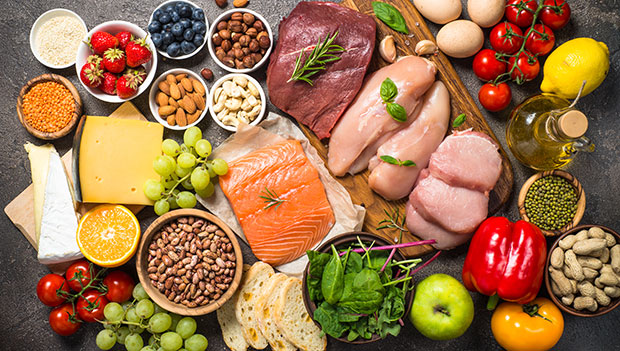
Many people find that the most sustainable diet to lose weight fast is one that includes:
- High amounts of lean proteins
- Plenty of fiber-rich non-starchy veggies
- Moderate amounts of healthy fats
- Small servings of complex carbs
Aim to eat about 0.6-1.4 grams of protein per pound of body weight as this has been shown to help manage hunger and maintain your muscle mass during weight loss. The rest of your calories can come from healthy fats and fiber-rich carbs.
Some people find it helpful to use a weight loss app, like Noom, or a guided program to help monitor their progress. That said, tracking calories and macros is not for everyone. If you have a history of a disordered relationship with food it may be best to seek the guidance of a registered dietitian.
10 Tips to Lose Weight Fast Without Exercise
Now that we've established a solid base diet to fast-track your weight loss progress, here are 10 science-backed tips to lose weight fast without exercise.
1. Don’t Drink Your Calories
The calories in sugary beverages such as soda, iced tea, lemonade, and sports drinks add up quickly. A typical 12-ounce can of cola contains 140 empty calories and 39 grams of sugar! Try swapping out sugary beverages for alternatives such as water, seltzers, diet beverages, and other calorie-free options.
In addition, drinking water before a meal has been shown to result in a reduction in energy intake and improved fullness, meaning you are likely to eat fewer calories if you drink fluids before a meal.
2. Control Your Portion Sizes
When looking to lose weight with diet alone, portion control is key. Try measuring out your portions with a measuring cup or weighing them with a food scale to get an idea of how big your desired portion should be.
While this varies between individuals, on average when looking to lose weight fast, aim for around a half cup of carbs, a palm-sized portion (about three to four ounces) of protein, plenty of veggies, and a thumb-sized serving of healthy fats such as olive oil.
Controlling your portion sizes allows you to still enjoy tasty foods without overloading on calories for that meal. Use meal prep containers to help you stick to portion sizes and save time.
3. Increase Your Fiber Intake
Fiber is found in nutritious foods such as vegetables, fruits, beans, and whole grains. This non-digestible portion of certain carbs adds bulk to your diet and can help keep you fuller for longer in turn reducing feelings of hunger. In fact, research shows that by simply adding additional fiber to your diet you may lose more weight and have more success keeping it off.
Adding fiber to your diet is as easy as swapping out refined carbs, such as white flour, for fiber-rich options such as whole grains and vegetables.
4. Get More Sleep

While it may seem unrelated, the quality of your sleep can actually have a significant impact on your ability to lose weight. Research shows that poor sleep can negate weight loss efforts by increasing hunger-stimulating hormones making it much harder to lose weight, especially from diet alone. Therefore, one of the most impactful things you can do when looking to lose weight fast without exercise is to improve your sleep.
5. Don't Keep High-Calorie Snack Foods Around
If you know that you're the type of person that can't just have one cookie or one scoop of ice cream, it's best not to keep these items in the house. Alternatively, you may want to find some healthier options that still satisfy that sweet tooth without derailing your weight loss plan. For example, choose a lower-calorie frozen yogurt over ice cream, or grab a chocolate-covered strawberry instead of a cookie.
That said, it's important not to overly deprive yourself. In the long run, this can backfire leading to weight regain and binge eating. Allow yourself a sweet treat on occasion, but aim to return to your weight loss plan when you're done.
6. Double Down on Lean Protein
Lean protein is your friend when looking to lose weight from diet alone. Low-fat proteins are low in calories and can keep you full to prevent you from getting hungry too quickly. These include foods like chicken breast, lean ground turkey, lean cuts of pork or beef, fish, tofu, and other high-protein meat substitutes, low-fat cheese, cottage cheese, eggs, and egg whites.
As an added bonus, eating a high-protein diet when losing weight will help prevent you from losing muscle, as muscle is metabolically active and can actually help you burn more calories.
7. Don't Forget Healthy Fats
Oftentimes when dieting people tend to shy away from all fats in general though incorporating healthy fats in your weight loss diet can actually help keep you fuller for longer and provide a number of other health benefits throughout the body.
Some examples of healthy fat sources include avocado, olive oil, nuts, nut butters, seeds (sunflower, chia, hemp, flax), and fatty fish. Try adding avocado to your salads, or having some nut butter with apple slices for a snack.
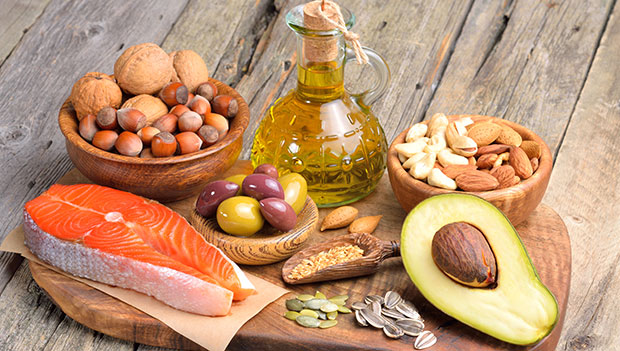
8. Eat Slower
When eating a meal there is a slight delay between when you start eating and when your stomach registers the food intake. By scarfing down a meal quickly, you don't give your stomach time to register the volume of food that is coming in, which can result in excess calories being consumed. By eating a bit slower, your stomach has more time to register your food intake which can result in a feeling of fullness, allowing you to eat fewer calories.
9. Practice Mindful Eating
Mindful eating is an approach that focuses on an individual's awareness of hunger and total experience surrounding food. The whole purpose of this practice is to be more in tune with your body's hunger cues and to allow yourself to stop eating when you are full. You can eat more mindfully by trying to minimize distractions during meals which allows you to focus on the taste of the food and how hungry you are.
Here’s one way to put this into practice: Instead of aimlessly snacking while watching TV, portion out a serving or two of a snack, and sit down at the dining room table to eat it. This allows you to pay attention to the taste and your own personal hunger cues.
10. Eat At Home More Often
When eating out you are much more likely to overconsume calories than when preparing food at home. This is often due to large portion sizes and additional ingredients (i.e. butter, oils, cheese) added to foods at restaurants.
In fact the research shows that those who prepare food at home more frequently have a better quality diet and are less likely to be overweight. One impactful change you can make when trying to lose weight is to cook more meals at home. You can also eat healthy on the road while traveling with some planning and intentionality.
Incorporating fat burners like PhenQ into your diet can also help.
Final Takeaway
Losing weight fast is certainly possible by manipulating your diet alone. As long as you adhere to a gradual calorie deficit over time, you will likely have success. For many people, a diet that is high in protein and veggies, moderate in healthy fats, and low in carbs will help promote weight loss, though feel free to experiment with what works best for you.
If you hit a sticking point after a few months, that may be a good point to reassess your plan and decide if you'd like to add in some exercise (link to workouts to lose weight here) to kick things up a notch. Until then, if you follow the tips we’ve outlined above, you’re set up for a successful weight loss journey without having to step foot in the gym.
How to Lose Weight Fast | Workouts to Lose Weight | How to Lose Weight Without Exercise | How to Eat to Lose Weight | How to Burn Belly Fat | Best Weight Loss Apps | Fat-Burning Foods | Best Fat Burners | Best Weight-Loss Supplements
Fitness Events Near You
Zumba - July
City of Inglewood • Inglewood, CA
Fitness
Naomi HIIT Water Aerobics - Thu 7/17
City of Hawthorne • Hawthorne, CA
Fitness
Yoga at the Beach House 07/17
City of Santa Monica • Santa Monica, CA
Fitness
About the Author

Daniel Preiato is a registered dietitian who specializes in sports nutrition and nutrition education. He is also a certified strength and conditioning specialist, and an avid strength athlete. He uses his background in clinical nutrition to dissect research and help individuals meet their health and fitness goals.
Get ACTIVE on the Go


Couch to 5K®
The best way to get new runners off the couch and across the finish line of their first 5K.
Available for iOS | Android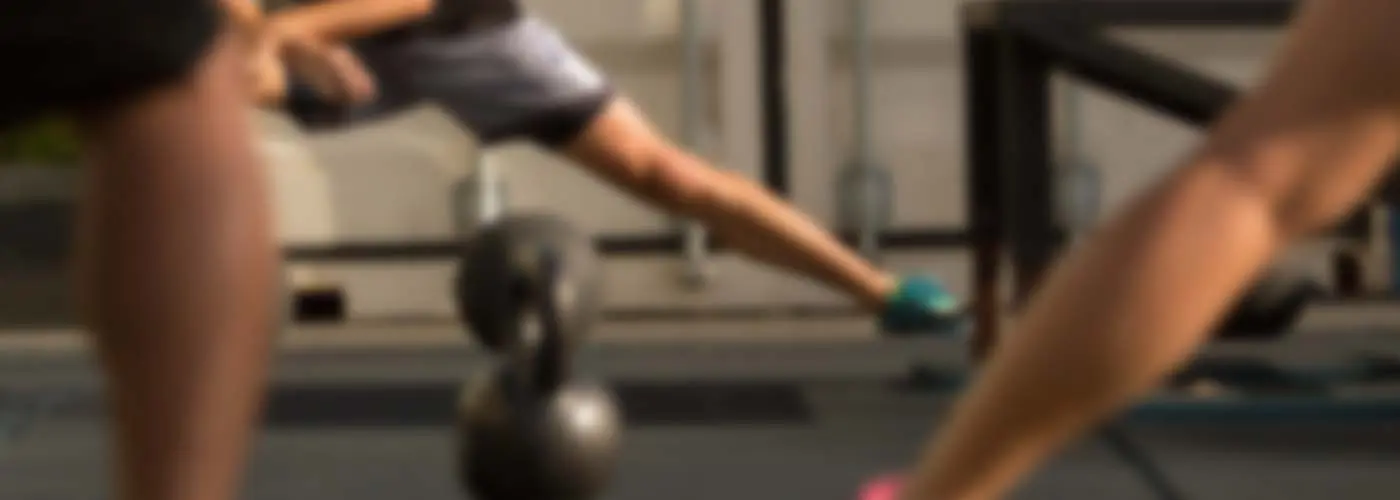
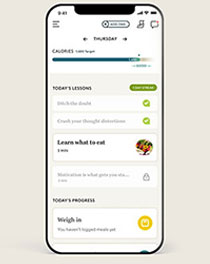

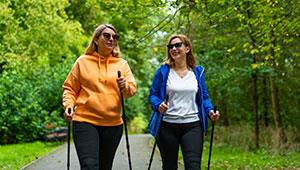





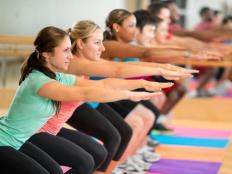
Discuss This Article